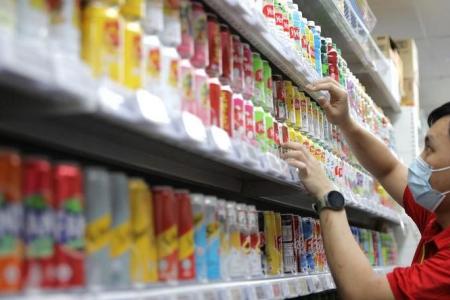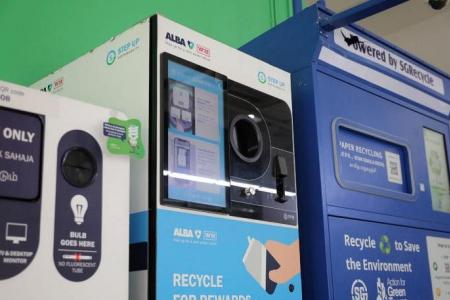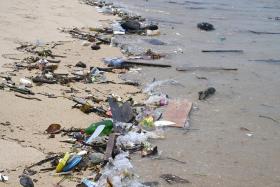Canned and bottled drinks to come with a 10-20-cent deposit by mid-2024, redeemable when recycled
By mid-2024, consumers seeking to quench their thirst from a canned or bottled drink will likely have to fork out 10 to 20 cents more.
However, this extra cost can be redeemed if consumers return their empty bottles and cans for recycling at any of the beverage container return points islandwide.
These return points could take the form of "reverse" vending machines, into which bottles and cans can be deposited to get money in return, or manually operated counters.
By the time of implementation, there will be more than 400 such points on the island, up from the 50 reverse vending machines currently.
The new beverage container return scheme proposed by the National Environment Agency (NEA) was announced on Tuesday.
Under the proposed scheme, a small deposit of between 10 and 20 cents will be added to the price of all pre-packaged drinks in plastic bottles and metal cans between 150ml and 3l.
This deposit will be the same across all beverages of the same size.
Drinks will be labelled with a deposit mark and consumers can claim a refund of the deposits when they return their empty beverage containers to a return point. This redemption will likely be in the form of cash or digital transfer.
Return points will be set up at all supermarkets that are larger than 200 sq m. Other possible return locations include convenience stores and community centres.
The proposed scheme comes after extensive public engagement and aims to increase the recycling rate of beverage containers in Singapore to 80 per cent.
This is NEA's latest idea to nudge people towards recycling, as only 6 per cent of all plastic waste was recycled in Singapore last year.
Many nations which have implemented such a scheme have been able to raise their recycling rates of beverage containers substantially. For example, in Germany, the recycling rate of beverage containers stands at 98 per cent.
NEA is seeking feedback on the beverage container return scheme, which is part of governmental recommendations to cut such packaging waste generated in Singapore.
Drink producers will be charged 10 to 20 cents by a non-profit scheme administrator appointed by the industry.
When consumers return the containers, the administrator will aggregate them and facilitate their sale to waste companies.
The revenue from this sale will be used to reimburse producers for the extra costs incurred.
Hence, the total amount reimbursed to the drink producers will depend on how effective they have been in encouraging their customers to recycle the containers.
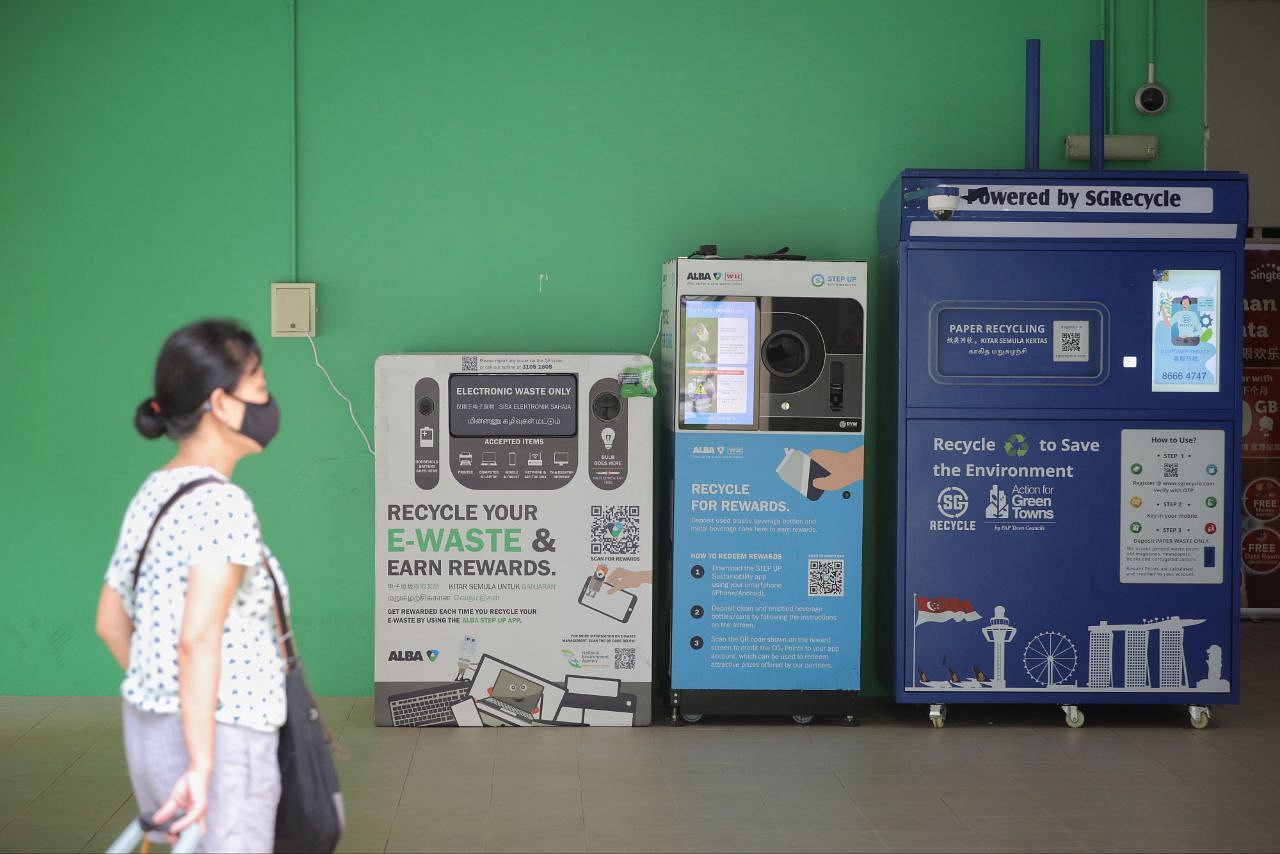
NEA said the beverage container return scheme marks the first phase of the Extended Producer Responsibility system introduced to vest producers with greater responsibility in ensuring their products are recycled.
Such a scheme would promote accountability and efficiency in the industry and also minimise costs to run the scheme, said NEA.
At a doorstop event on Tuesday in Bukit Batok, Senior Minister of State for Sustainability and the Environment Amy Khor said that she hoped the high volume of recyclables collected from this scheme would incentivise the set up of domestic recycling facilities.
Dr Khor added that the sale of high quality recyclable material itself would also help drink producers fund a significant part of implementing the scheme.
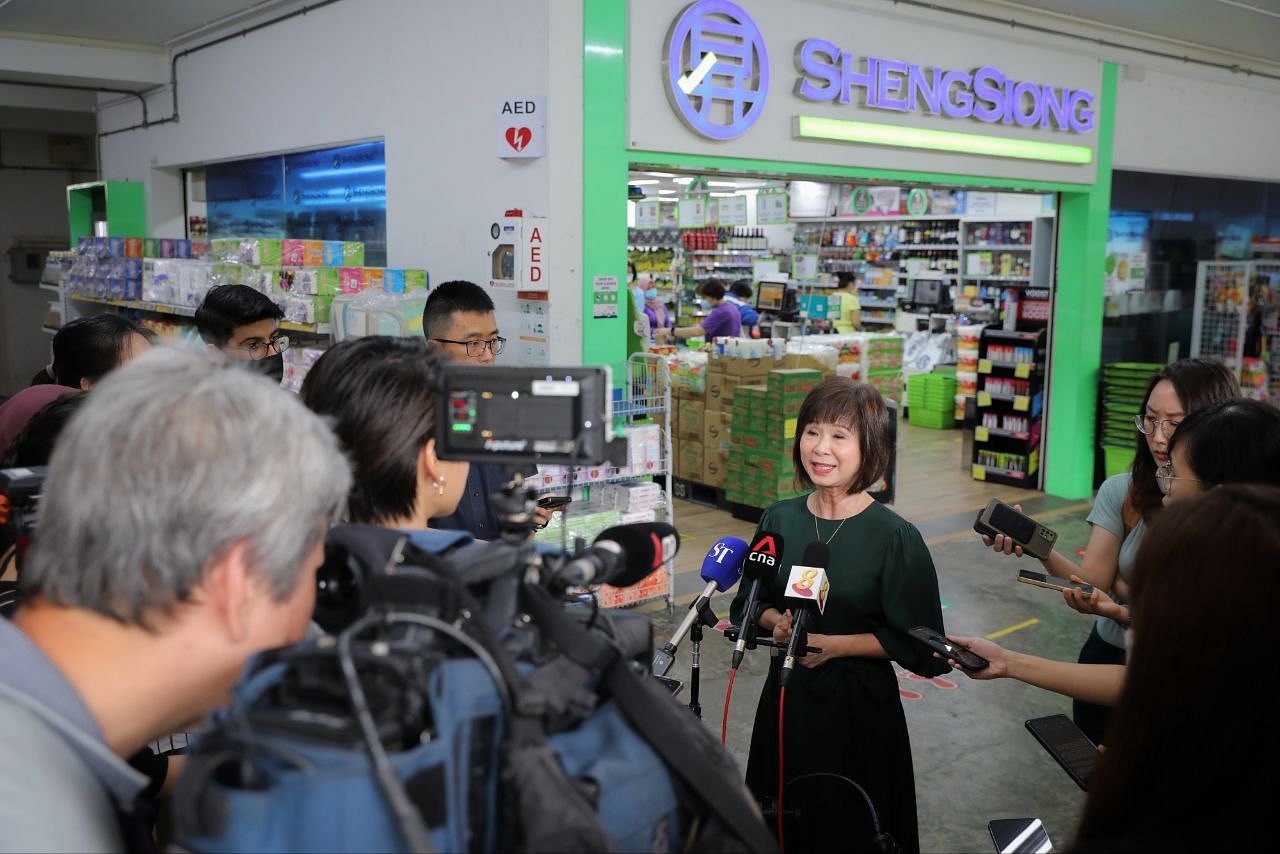
Ms Kathlyn Tan, a member of the work group that suggested the beverage container return initiative to NEA, said the 10- to 20-cent deposit amount is a good start.
Ms Tan, the director of Rumah Group, a family office for sustainable investments, said: "My hope for the scheme is that our recycling rates will be increased; we become more conscious of our environmental footprint; and that negative impacts on the vulnerable will be minimised."
Associate Professor Jia Lile of the psychology department at the National University of Singapore said: "As a behavioural scientist, I believe a 10- to 20-cent deposit would be effective...But I also believe that the deposit provides only the seed of change."
Other factors, like more consistent messaging and management of the scheme, are needed to cultivate long-term behavioural change towards recycling, he added.
Public feedback is sought on the deposit amount, where the refund points should be and how the deposit should be refunded, among other things.
Feedback can be given at Reach, the Government's feedback unit, from now to Oct 14 at this website.
Get The New Paper on your phone with the free TNP app. Download from the Apple App Store or Google Play Store now

